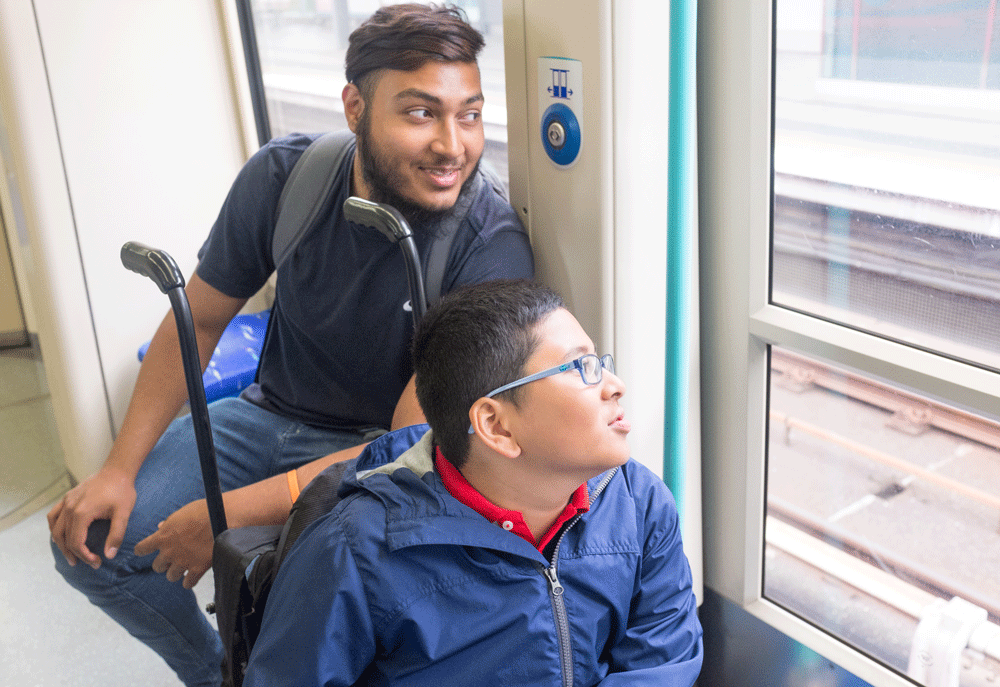How we’re tackling loneliness
Richard, our chief executive, discusses loneliness and how we’re helping tackle it.

Loneliness crosses all borders. It doesn’t limit itself to any particular group of people. It doesn’t discriminate. As a result, loneliness isn’t seen as something that affects older people. Loneliness is a public health threat – and it affects everyone.
Loneliness bears down heavily with disabled people who may not have opportunities to make friendships in the first place. Disabled people face barriers in daily life which make them more chronically lonely than non-disabled people. Statistically, disabled people are least likely to have support networks around them, or have the same chance to feel part of their local communities. Practical challenges such as the need for accessible transport and buildings, financial support and appropriate social care, created this problem.
The epidemic of loneliness
Since Covid-19, two-thirds of disabled people now say they feel lonely often or always. Considering the correlation between loneliness and mental and physical health, it’s clear the pandemic has had a devastating impact in more ways than one.
This is compounded by the fact that for many disabled people, support has been reduced during the pandemic – and if this doesn’t reflect the risk and impact on them –disabled people make up six in ten of all Covid-19 deaths.
The general public has poor levels of understanding and awareness of disability. This creates some of the largest barriers to making connections and finding common interests with others. 1 in 4 (26%) people admit to avoiding conversations with disabled people.
How is Sense tackling loneliness?
At Sense, we believe that no one should be isolated, left out, or unable to fulfill their potential. Tackling loneliness is at the core of our work.
We campaign for more accessible and inclusive settings that disabled and non-disabled people can access.
As a service provider, we have a responsibility to ensure people receive support with forming friendships, accessing their community, and feeling included.
Buddying brings people together
Our Buddying services help to tackle isolation and loneliness. It also brings disabled and non-disabled people together.
Sense Virtual Buddying is free and available to anyone living in the UK. It matches a disabled person with a volunteer, based on personality and shared interests. From there, volunteers and buddies connect for an hour a week online, to have fun together and take part in a range of activities. Fun is had, and friendships are formed.
Sense also offers a face-to-face service, where buddies can meet in person and spend time in their local community doing activities together.
The service is successful because it connects people with common interests who are not paid professionals but who are there because they want to form a genuine connection. This is a very powerful message to people with preconceptions about disabilities.
As well as being sincere, relationships are characterised by being equal. Volunteers, like young people, show the same nerves on first meeting and same elation as their connection grows deeper.
Before lockdown one of our volunteers invited his 17-year-old young buddy to his wedding – I think that’s a perfect example of how genuine these friendships can be.
Become a virtual buddy
Join us in tackling loneliness.

